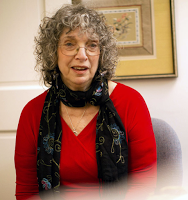November is National Adoption Awareness Month: time to take stock and rethink our adoption practices and goals.
Recent headlines reveal such contradictions as:
* 3,700 U.S. families in the process of adopting children from Guatemala are concerned, upset and unsure about their pending adoption because of Guatemala’s crack down on child trafficking.
* British Foreign Secretary David Miliband and his wife are joyously celebrating their second adoption: both adopted as newborns fresh from American delivery rooms.
Adoption Awareness Month was intended to increase the awareness of the needs of US orphans in foster care who could benefit from adoption. Today, such children number in excess of 100,00 of the half million children in foster care, while we promote and encourage adoption without distinguishing these children from infants who are sought after.
The U.S. imports more infants for adoption that any other nation, while also exporting Black children to Canada and white infants to the wealthy in Britain, Mexico and elsewhere in a seeming endless redistribution redistributing these marketable commodities as private entrepreneurs profit from their demand with little to no regulations.
L. Ann Babb, author of Ethics in American Adoption. reports that American adoption “[p]rofessionals have yet to develop uniform ethical standards… or to make meaningful attempts to monitor their own profession … In other professions and occupations, licensing or certification in a specialty must be earned before an individual can offer expert services in an area. The certified manicurist may not give facials; the certified hair stylist may not offer manicures ….Yet…individuals with professions as different as social work and law, marriage and family therapy, and medicine may call themselves ‘adoption professionals’.”
Babb continues: “There remains no national professional organization for adoption specialists, no professional recognition of adoption practice as a specialty of any discipline, no established education and training requirements, and no regular professional meetings and forums for adoption ‘professionals.’”
Brits are lauding America’s lax regulations that allowed the Miliband’s to twice adopt an American infant. The British media articles bemoan the fact that Britain does not allow such exploitive measures, as if adoption was about providing babies in the quickest way possible with the least amount of red tape, eliciting comments such as:
American websites currently offer mouth-watering incentives to would-be buyers. "Delivery within four months", "Discounts of up to $19,000", they proclaim.Is there no shame?
If it were cars they were selling this would not seem odd, but it's babies that are for sale – bright, smiling newborns to tempt the childless into parting with about £20,000.
There is no shame in treating babies like any other purchase in America, where the adoption industry is largely privatized… (“Why adoption is so easy in America” Telegraph.co.uk 10/31/07)
Why are infants such as these are leaving the US while US couples are traveling half way around the word to meet their desire for a baby when both countries have children in foster care?
The answer is that adoption is far from an altruist social program to care for needy orphans. Instead, adoption is a business; babies are priced based on age, race, ethnicity, health, and physical ability. It all sounds vulgar because it is.
“It feels harsh to use concepts like supply and demand when talking about children and obviously it’s wrong to say that international adoption is just a trade in children,” says Riitta Högbacka, University of Helsinki, Finland, reporting on the global market for adoption . “But if we look at the direction of this human flow—which countries are sending children, which countries are receiving and who is doing the adopting—then it is very clear. It goes from the South to the North and from the East to the West. The recipients are always the richer countries in North America, Europe, and Australia.
The summary of the Evan B. Donaldson Nov. 1999 conference, “Money, Power and Accountability: The ‘Business’ of Adoption” concluded: “Thinking of adoption in economic terms is an uncomfortable reality. There has been a deterioration of the constraints once put in place to protect members of the triad from exploitation, with market factors such as inflated inventories, scarce commodities, demographic trends in the marketplace, products in oversupply, and the principles of supply and demand affecting adoption services.”
ThisIsLondon.co.uk reported: “a couple, friends for many years, who, having been told in Britain that they were far, far too old to be considered, adopted a black child nine years ago in the United States. They did it completely legally since they were resident there for a year on an academic exchange. But they got a price list: $25,000 for a white baby, $12,500 for an Asian baby and $5,000 for a black one.”
“Profit-based motivation in child placement [that] is … loathsome” and “largely driven by money… Money has become the critical variable for determining who gets a child….” according to L. Anne Babb: The fees western adopters are willing to pay to obtain a child often support a lucrative black market coercing mothers, stealing and kidnapping babies and children that are sold to orphanages to be internationally adopted.
(Note: You can view every article as one long page if you sign up as an Advocate Member, or higher).





